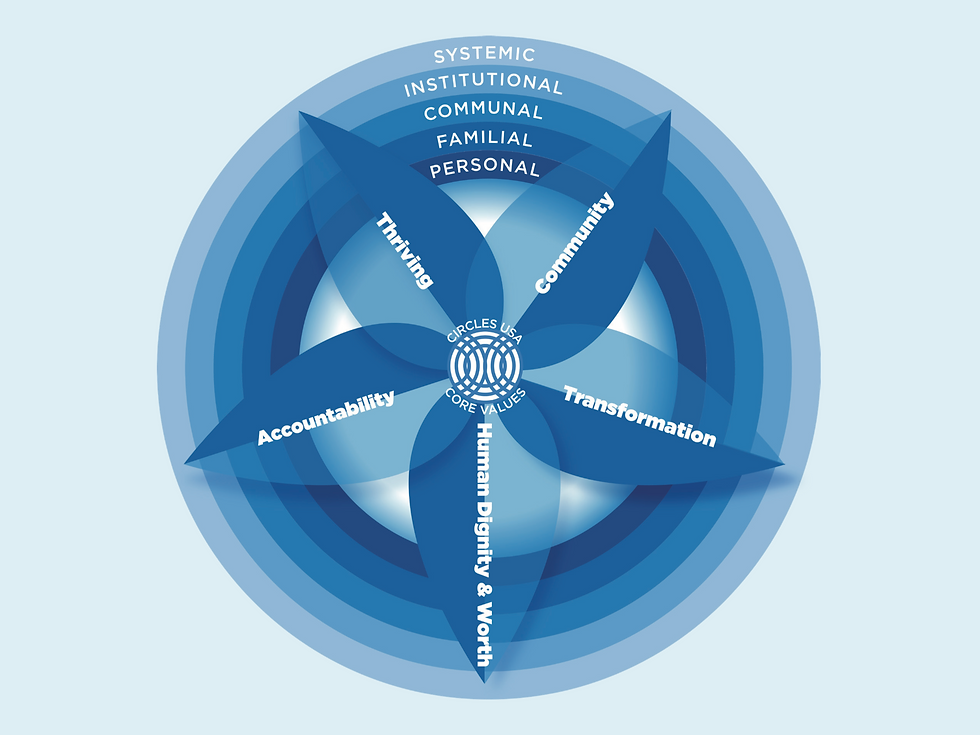Social Capital: The Key to Poverty Alleviation
- May 5, 2022
- 2 min read
Updated: Dec 15, 2025
At Circles, we know relationships are the cornerstone of any effective poverty alleviation system. To foster intentional relationships, our model provides three kinds of social capital (or valuable networks of human connection): bonding, in which peers connect with peers; bridging, in which social capital expands each participant’s connections to opportunities and a broader community through volunteers; and linking, in which a participant’s social capital expands even further to the network and resources beyond the volunteers—like connecting with new job pathways, educational opportunities, and advocating for systemic change. Bonding, bridging, and linking social capital are lifelong assets that equip our participants to thrive.
Here are positive experiences of social capital from our Circles community:
–Bonding:
“Being a part of Circles Lambton literally changed my life. It gave me a sense of belonging, being a part of the community, being able to build relationships, and having support to move forward with my education and finances. I can honestly say I wouldn’t be where I am today without Circles in my life.” —Rene Allison, Circles participant from Lambton, Canada and college graduate
–Bridging:
“Because of my work with Circles, I was made aware of new programs in the state of Indiana to help those negatively impacted by Covid-19; and I have become a voice in our county to promote them. I love the way Circles builds community for our Circle Leaders and volunteers, and I’ve seen that remain strong even through the challenges of the pandemic.” —Lori Miller, Circles Putnam County Program Administrator
–Linking:
“Relationships have blossomed into friendships—with boundaries. I’ve been much more personally invested and vocal about supporting local businesses, trying to find ways to make an organic movement happen locally.” —Matthew Hastreiter, Circles Green Bay Coach
Resource:
“Social capital and poverty alleviation,” a 2020 report by Social Capital Research and Training founder Tristan Claridge, provides a basic framework for understanding the connection between social capital—including “finance and lending; social networks and membership; various efficiencies and savings; innovation, creativity and problem solving; belonging, solidarity and resilience”—and effective poverty alleviation strategies.
Contact gena@circlesusa.org for more information about using social capital for poverty alleviation.




Comments